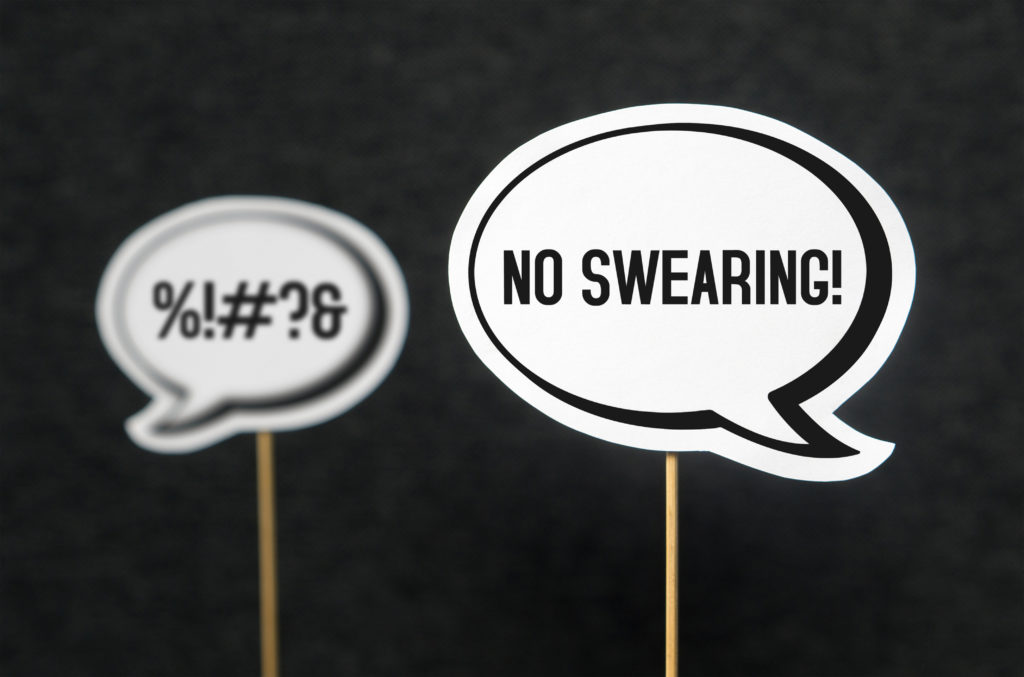Quick Hits
Daily brief research updates from the cognitive sciences

Swearing is frowned upon in many circumstances but is also used by many people in casual situations and particularly by comedians. So why do we swear if it is taboo?
A team of researchers at Keel University in the UK have just published a series of experiments in which they tried to elucidate the psychological mechanisms of swearing. It should be noted that these effects are in line with previous research. First off, they found that swearing increases physical strength – in this case it was how long participants could perform a chair push up (holding yourself for as long as possible on the arms of a chair). Other research has found that swearing increases pain tolerance which may be related.
Another experiment they conducted was in risky behaviour – in this case this was pumping up a balloon and seeing how far participants would pump with the obvious risk that it would explode. Swearing increases risk by 8%. They also noted that swearing increased self-confidence but also it had a humorous effect (also in line with previous research).
The psychological mechanisms they identify are all related to lowering self-control and “letting go”. So, swearing seems to do many things that are actually beneficial to us – no wonder we swear so much.

Andy Habermacher
Andy is author of leading brains Review, Neuroleadership, and multiple other books. He has been intensively involved in writing and research into neuroleadership and is considered one of Europe’s leading experts. He is also a well-known public speaker speaking on the brain and human behaviour.
Andy is also a masters athlete (middle distance running) and competes regularly at international competitions (and holds a few national records in his age category).
Reference
Stephens R, Dowber H, Barrie A, Almeida S, Atkins K.
Effect of swearing on strength: Disinhibition as a potential mediator.
Quarterly Journal of Experimental Psychology, March 2022.
doi:10.1177/17470218221082657
More Quick Hits
Brisk walking slows biological aging
Quick HitsDaily brief research updates from the cognitive sciences f you want to age better, then walk quicker, or those who walk quicker, age slower. That is the result of a recent study of 400,000 UK adults mapped to genetic markers of age...
Learning at double-speed?
Quick HitsDaily brief research updates from the cognitive sciences ouldn’t it be great if we could learn things double speed? Well, maybe we can. At least according to a study out of the University of California. During the pandemic many...
The “drunken monkey” hypothesis – proven
This had to be a story I covered – monkeys and alcohol sounds too good to pass up. But this is also linked to the “drunken monkey” hypothesis: that humans developed their love for alcohol in earlier primitive times accidentally, and then intentionally, eating fruit...
The Newly Discovered Bias That Makes Us Think We Are More Diverse Than We Are
A few weeks ago I reported on some newly discovered ways we are biased namely that we consider generic terms such as “people” as equivalent to “men” rather than men and women. This was specifically focused on gender bias but this latest piece recently published shows...
Self-awareness of autism leads to better quality of life
Autism has become a well-known diagnosis in recent years. Though some people seem to be against this sort of labelling, and the general increase in different label of mental conditions, a study out of the University of Portsmouth shows why this is actually a good...
Optimal sleep improves your brain, mental, and physical health - and it’s not as much as you think
I’ve reported multiple times on sleep and how it affects just about everything form cognitive performance, to brain plasticity, to physical performance, to mental health, and to metabolism. The question...






